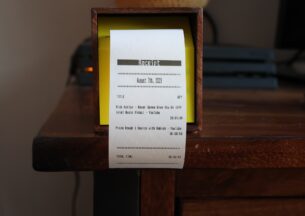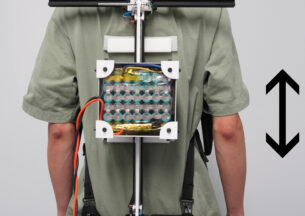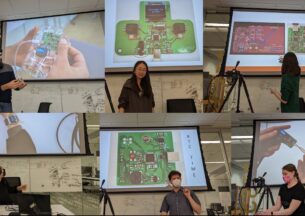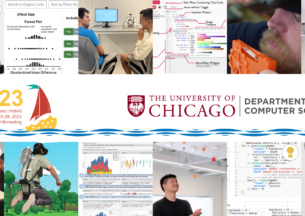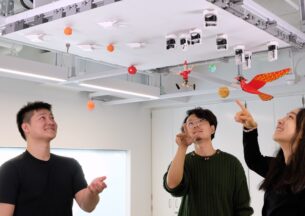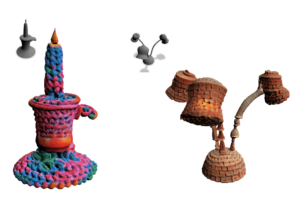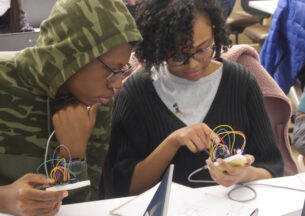Pedro Lopes (UChicago)- Integrating Interactive Devices with the User's Body
The main question that drives my research is: what is the next interface paradigm that supersedes wearable devices? I argue that the new paradigm is one in which interactive devices will integrate with the user’s biological senses and actuators.
This way of engineering devices that intentionally borrow parts of the user’s biology puts forward a new generation of miniaturized devices; allowing us to circumvent traditional physical constraints. For instance, in the case of my devices based on electrical muscle stimulation, they demonstrate how our body-device integration circumvents the constraints imposed by the size of motors used in traditional haptic devices (e.g., robotic exoskeletons). Taking this further, we can apply this integrated approach to other modalities. For instance, we engineered a device that delivers chemicals to the user to generate temperature sensations, without the need to rely on cumbersome thermal actuators, such as air conditioners or heaters. My approach to miniaturizing devices is especially useful to advance mobile interactions, such as in virtual or augmented reality, where users have a desire to remain untethered & free.
Integrating devices with the user’s body allows to give users new physical abilities. For example, we have engineered a device that allows users to locate odor sources by “smelling in stereo” as well as a device that physically accelerates the user’s reaction time using muscle stimulation, which allows users to steer to safety or even catch a falling object that they would normally miss.
While this integration can offer many benefits (e.g., faster reaction time, realistic simulations in VR/AR, or faster skill acquisition), it also requires tackling new challenges, such as the question of agency: do we feel in control when our body is integrated with an interface? Together with our colleagues in neuroscience, we have been measuring how our brain encodes agency to improve the design of this new type of integrated interfaces. We found that, even in the extreme case of interfaces that electrically control the user’s muscles, it is possible to improve the sense of agency. More importantly, we found that it is only by preserving the user’s sense of agency that these integrated devices provide benefits even after the user takes them out.
Speakers
Pedro Lopes
Pedro Lopes is an Assistant Professor in Computer Science at the University of Chicago. Pedro focuses on integrating interfaces with the human body—exploring the interface paradigm that supersedes wearables. These include: muscle stimulation wearables that allow users to manipulate tools they have never seen before or that accelerate reaction time, or a device that leverages the smell to create an illusion of temperature. Pedro’s work has received several academic awards, such as five CHI/UIST Best Papers, Sloan Fellowship and NSF CAREER, and captured the interest of the public (e.g., New York Times, exhibited at Ars Electronica, etc.)



